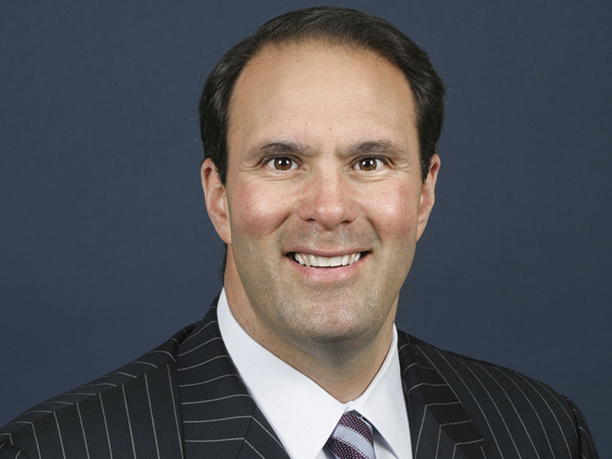Mark Rifkin ’82 Brings Beloved Songs into the Public Domain
The transition from a politics major at Princeton to a New York litigation attorney seemed logical for Mark Rifkin ’82. Perhaps more surprising was his metamorphosis into an amateur music historian.
Over the last several years, Rifkin has immersed himself in the history of two iconic and beloved songs, “We Shall Overcome” and “Happy Birthday to You,” in his ultimately successful quests to help return the pieces to the public domain.
Rifkin, a senior partner with Wolf Haldenstein Adler Freeman & Herz, said he was drawn to the “Happy Birthday” case in 2015 when another partner in the firm, Randy Newman, introduced him to independent filmmaker Jennifer Nelson. Nelson had been unable to include birthday party scenes with the song in the MTV reality show she produced, “Teen Mom,” because MTV refused to pay licensing fees to Warner Chappell Music for the right to use the song. This prompted her to produce a short documentary, “Saving Happy Birthday,” which also led to the lawsuit. Rifkin and Newman represented the cause in the class action suit Good Morning to You Productions, Corp. v. Warner Chappell Music, Inc.
Rifkin recounts the song’s history: Two sisters, Mildred and Patty Hill, wrote a song together called “Good Morning to All” in Louisville, Ky., around 1890. The melody of the song is that of “Happy Birthday” but the original lyrics, while similar, were not the same. “Good Morning to All” was first published in 1893 in a songbook for the Chicago World’s Fair. The Clayton F. Summy Company registered a copyright to “Happy Birthday to You” in 1935, and Warner Chappell Music purchased a successor to the Summy company in 1988, and rights fees for the song garnered about $2 million a year, according to an article in the Los Angeles Times.
Rifkin traveled to Louisville to investigate the matter. He and Newman determined that while there are many stories in Louisville about who wrote the lyrics to “Happy Birthday,” there’s no evidence that the Hills or anyone else wrote the lyrics down or claimed to have copyrighted them, and the copyright to the melody expired decades ago, in 1949.
In 2015, Chief Judge George King of the Federal District Court in Los Angeles found that Warner Chappell never owned the copyright. The global music publishing company agreed to pay $14 million to those who had paid to use the song since 1949. And in 2016, Rifkin and Wolf Haldenstein were named Trailblazers in Intellectual Property by The National Law Journal.
On the heels of that victory, and partly due to the worldwide media attention the “Happy Birthday” case received, the firm was contacted by another documentary filmmaker, Isaias Gamboa, who was working on a film about the history of the civil rights anthem “We Shall Overcome.”
Gamboa had evidence that the song was based on the hymn “If My Jesus Wills,” written by Cincinnati-based singer and composer Louise Shropshire before 1942, drawing on African-American spirituals from earlier in the 20th century. The lyrics included the lines, “I’ll overcome. I’ll overcome. I’ll overcome someday.”
In 1960 and 1963, the publisher Ludlow Music registered copyrights for “We Shall Overcome,” asserting that the song’s composers, including Pete Seeger, had altered the original. Rifkin and Newman filed a lawsuit on behalf of Gamboa and one other plaintiff — the producers of the film Lee Daniels’ The Butler, who had not been able to use the song in the film in the way they had wanted because they would have had to pay $100,000 to the Richmond Group and Ludlow music.
“We did pretty exhaustive research on ‘We Shall Overcome,’” Rifkin explained. “We were able to prove that the material that Ludlow claimed gave them the right to copyright the song was not copyrightable, so the judge invalidated part of the copyright [in September 2017].” The part of the copyright that was invalidated — the melody and first verse — had been in the public domain before Ludlow copyrighted it by changing one or two parts of the melody in the 1960s.
Rifkin said they were about to go to trial over the remaining verses when they reached a settlement with Ludlow and Richmond Music Association in January. The defendants agreed to forgo any claim to the song, entering it into the public domain. Because the plaintiffs withdrew the class allegations, no one recovered any money as a result of the case. But Rifkin said that anyone who has paid to use the song can bring a claim on their own, relying on the summary judgment decision that found that the melody and first verse of the song are not entitled to copyright protection.
Rifkin said he’s proud to have played a role in the freeing of these two iconic American songs. Everyone benefits, he said, “because what we were able to do is give the songs back to the public.”












No responses yet